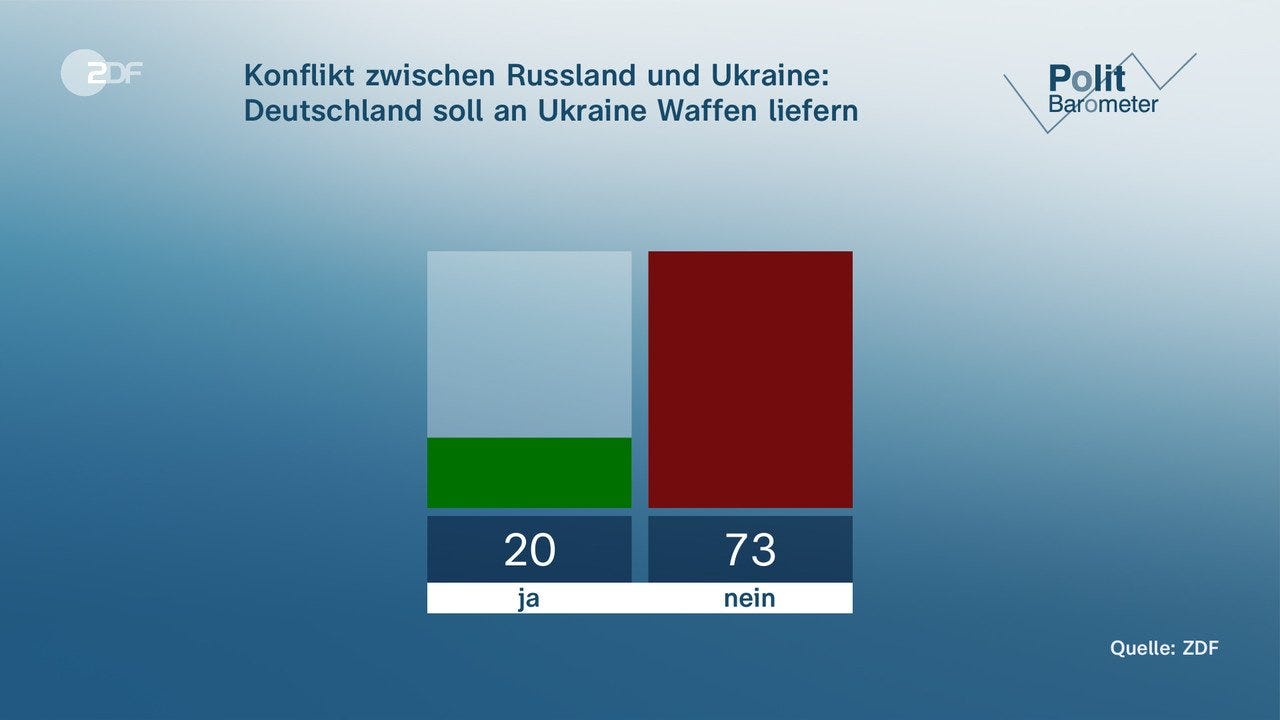Just How Powerful is Germany? A Look at the Numbers.
Germans often cite historical reasons for eschewing military force, including during the Ukraine crisis. But Germany’s economic and political assets carry great weight—when the country wants them to.

As the UK, US, Poland, and other NATO allies deliver weapons to help Ukraine defend itself against a possible Russian invasion, Germany continues to hold the line on sending military hardware. About 73 percent of Germans are against the idea, and Chancellor Olaf Scholz won’t even let Estonia send German-made artillery. Even Foreign Minister Annalena Baerbock—who has advocated a tougher line with Russia than often typical for Berlin—maintained that “our restrictive arms export policy is based on our history.”
But ruling out military solutions doesn’t mean Berlin is powerless to do anything.
In fact, German power largely comes from economic, political, and diplomatic influence. These German resources can have a great impact on the world stage—if Berlin wants them to. One recent poll found around 47 percent of Germans in favour of harsher sanctions on Russia. While that’s not a runaway endorsement given a sizeable minority of 41 percent who—even now—oppose tighter measures, using German economic power has generally been an easier sell than military assistance.
A lot of German power and influence is hard to quantify, but there’s enough hard indicators to start giving you an idea.
Germany: Geoeconomic Giant?
The German Council on Foreign Relations defines “geoeconomics” as “how the politics of trade, technology, finance, and/or energy can be employed to achieve strategic goals.” Let’s start with trade and the German economy. Germany is the world’s fourth largest economy in terms of nominal GDP. Depending on whether you’re looking at World Bank, UN, or IMF data—German GDP comes in an annual rate of around $4 trillion. That’s close to 20 percent of annual US GDP.
Germany is also one of the world’s largest exporters, especially considering the relative size of its economy. German exports in 2020 were only about $50 billion less than the US—in absolute numbers—and roughly half of China’s, despite how much larger these two economies are.
On both exports and in absolute terms, Germany leads its continent. Its annual output is over $1 trillion higher than either the European Union’s second-largest economy France, or the UK, which recently left the EU. Within the EU, this wealth and economic heft help give Germany a type of “first among equals” status.
The EU and German Diplomatic Networks
The 27-member EU—and Germany’s place within it—helps amplify the country’s overall influence on the world stage. Although certain decisions at the EU level, especially ones concerning foreign policy, require a unanimous vote, others require a “qualified majority.” That means that 55 percent of EU countries—representing 65 percent of the EU population—have to vote in favour of a measure for it to pass. With around 20 percent of the EU’s population, that makes Germany’s vote hard to ignore. As a member of both the euro and the Schengen area—in which countries have taken down the border controls they used to have with each other—Germany opts into all the key aspects of EU membership and uses its voice in all of them. With around 20 percent of EU GDP, it also typically fronts the largest single share of money for common initiatives like 2020’s €750 billion EU economic recovery package.
Germany’s leading place within the EU—when Berlin wants to—allows it to help steer a much larger European ship. The EU’s combined nominal GDP amounts to $15 trillion. That puts the EU roughly on level with Chinese GDP and just behind the United States. The euro is the second most used reserve currency in the world and the EU has concluded 37 free trade deals with countries outside the EU. Another 43 are applied provisionally.
Although the 27 countries obviously don’t always agree, European power—with Germany’s behind it—is most clear when they do. At the World Trade Organization, the EU negotiates as a single unit, with European Commission negotiators representing all 27 countries put together. Tight EU sanctions in 2012 eventually helped bring Iran to the negotiating table over its nuclear program. Whether it’s Iran sanctions in 2012 or crisis negotiations over Russia’s Crimea annexation in Ukraine, German Chancellors exert a heavy influence over any common EU response.
The National Brand and German Soft Power
While it might not necessarily come top of mind for German allies looking to the country to do more for Ukraine right now, Germany overall enjoys an excellent reputation around the world. While it’s hard to measure reputation, the Anholt-Ipsos Nation Brands Index attempts to do this by interviewing between 20,000 and 60,000 people a year on how they perceive various countries on everything from governance to a desire to visit, investment, and immigration practices. In 2021, Germany topped the list for a fifth straight year, with respondents feeling positive about German products, investing in German companies, and the government’s poverty reduction work around the world. Some parts of this reputation are evident in where Germany chooses to spend its money. For example, the country is the fourth largest contributor to the UN budget and is one of the largest donors of development aid in the OECD.




